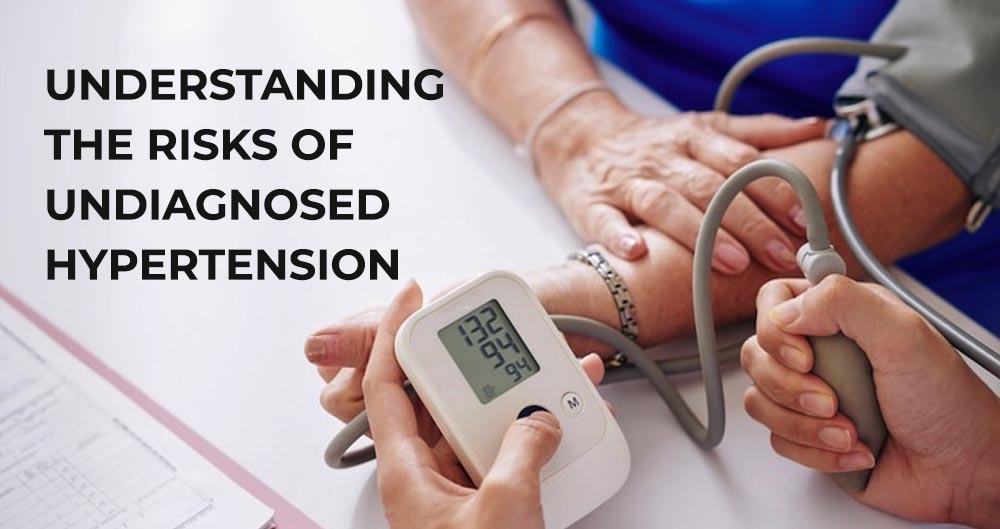
Understanding the Risks of Undiagnosed Hypertension
Hypertension, commonly known as high blood pressure, is often referred to as a silent killer due to its asymptomatic nature. It's a condition that affects millions worldwide, yet many remain unaware of their elevated blood pressure levels until it's too late. In this article, we delve into the risks associated with undiagnosed hypertension, shedding light on why early detection and management are crucial for maintaining optimal health.
The Stealth Threat: Undiagnosed Hypertension
Hypertension silently lurks within the body, often without noticeable symptoms, making it challenging to detect without regular blood pressure screenings. Uncontrolled high blood pressure can lead to a myriad of serious health complications, including heart disease, stroke, kidney damage, vision loss, and cognitive decline. Unfortunately, by the time symptoms manifest or complications arise, irreversible damage may have already occurred.
The Domino Effect: Complications of Untreated Hypertension
Undiagnosed hypertension sets off a chain reaction of adverse effects throughout the body. Elevated blood pressure puts strain on the heart, causing it to work harder to pump blood effectively. Over time, this can lead to the thickening of the heart muscle, increasing the risk of heart failure, coronary artery disease, and even sudden cardiac arrest.
Moreover, hypertension damages the delicate lining of blood vessels, promoting the formation of plaque deposits that narrow and stiffen arteries. This raises the risk of blood clots, leading to potentially life-threatening conditions such as heart attack and stroke. Additionally, uncontrolled hypertension can impair kidney function, resulting in kidney disease or failure—a silent yet serious consequence of untreated high blood pressure.
The Silent Saboteur: Lifestyle Factors and Hypertension
Several lifestyle factors contribute to the development and exacerbation of hypertension, including poor diet, sedentary behavior, excess weight, smoking, excessive alcohol consumption, and chronic stress. Addressing these modifiable risk factors through healthy lifestyle changes is essential for both preventing and managing hypertension.
A Call to Action: The Importance of Early Detection and Management
Regular blood pressure screenings are the cornerstone of hypertension management, enabling early detection and intervention. The American Heart Association recommends blood pressure checks at least once every two years for adults with normal blood pressure and more frequent monitoring for those with elevated readings or risk factors.
Conclusion:
Undiagnosed hypertension poses a significant threat to cardiovascular health and overall well-being. By understanding the risks associated with high blood pressure and prioritizing regular screenings and proactive management, individuals can take control of their health and reduce the likelihood of hypertension-related complications. Remember, the journey to optimal health begins with awareness, action, and a commitment to heart-healthy living.
